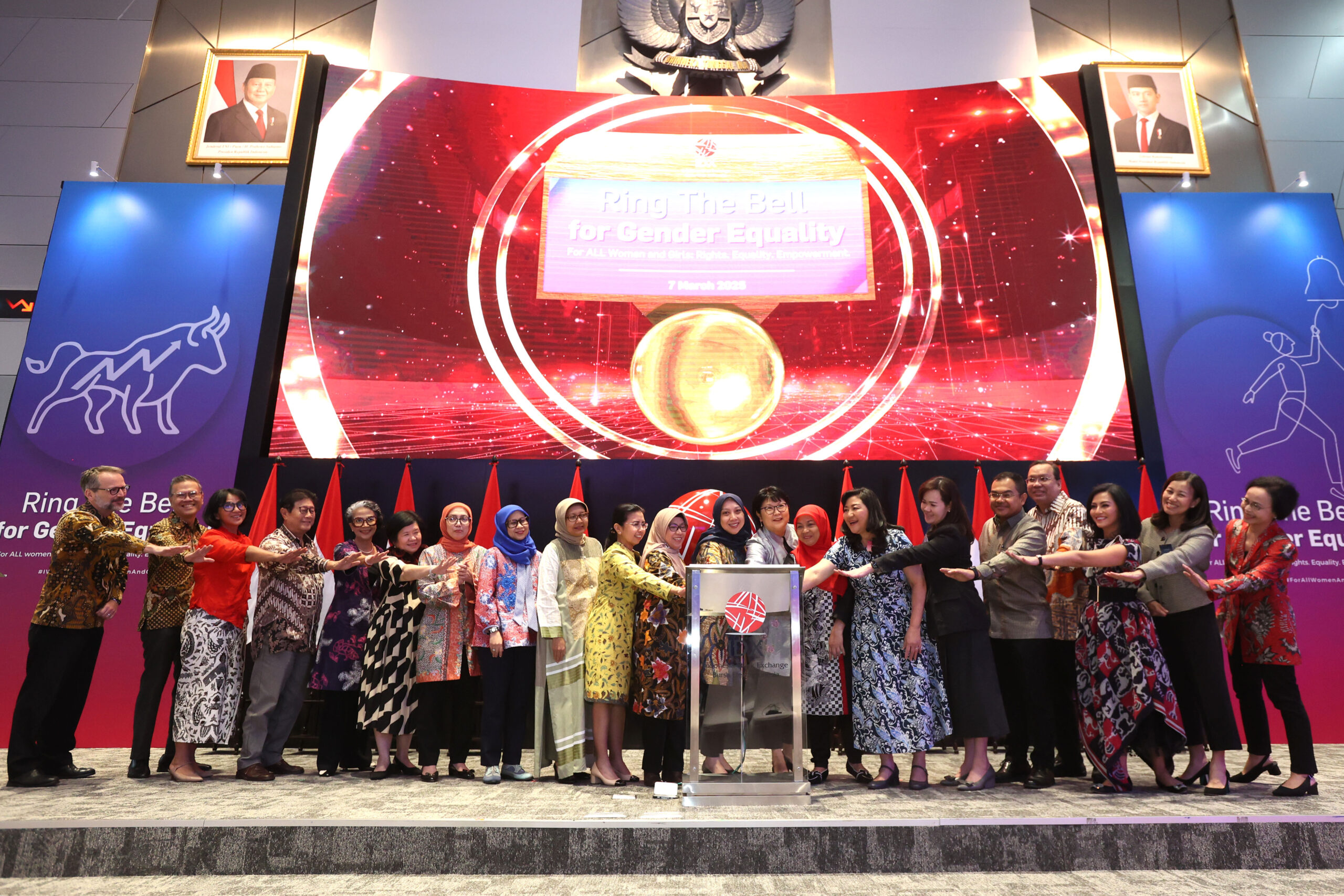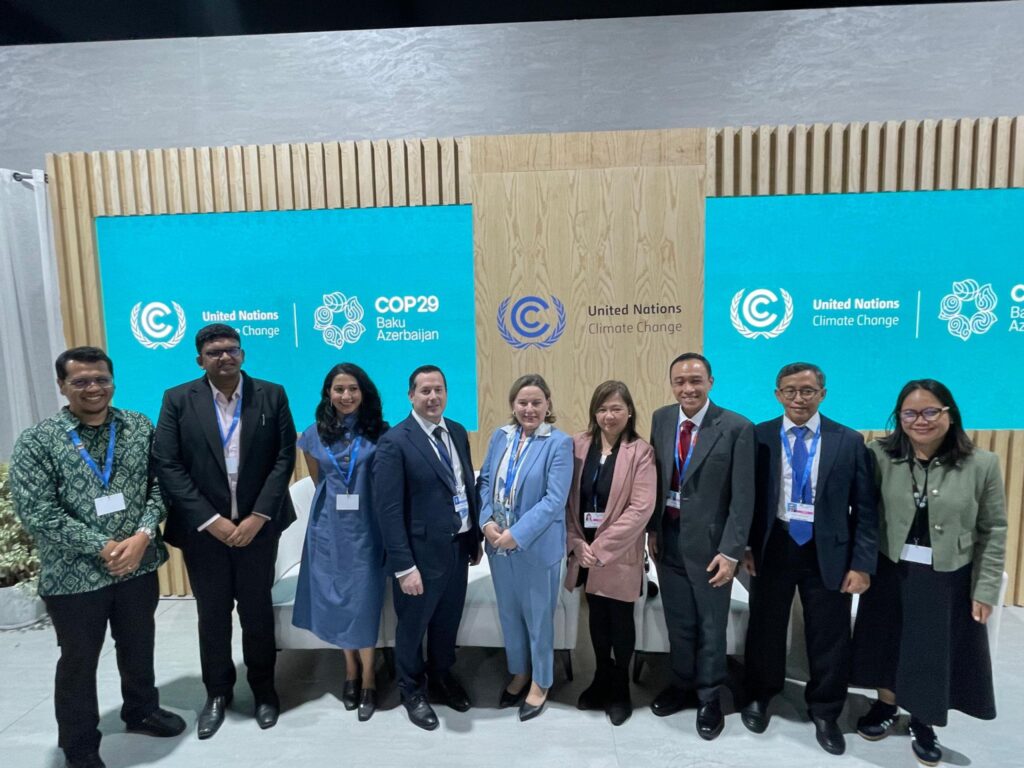
The High-Level Event on Private Sector Engagement in Implementing Nationally Determined Contributions (NDCs) including through Article 6, convened leaders and stakeholders during COP29 in Baku, Azerbaijan, on 14 November 2024. The session underscored the vital role of the private sector in achieving NDC targets and advancing global climate goals.
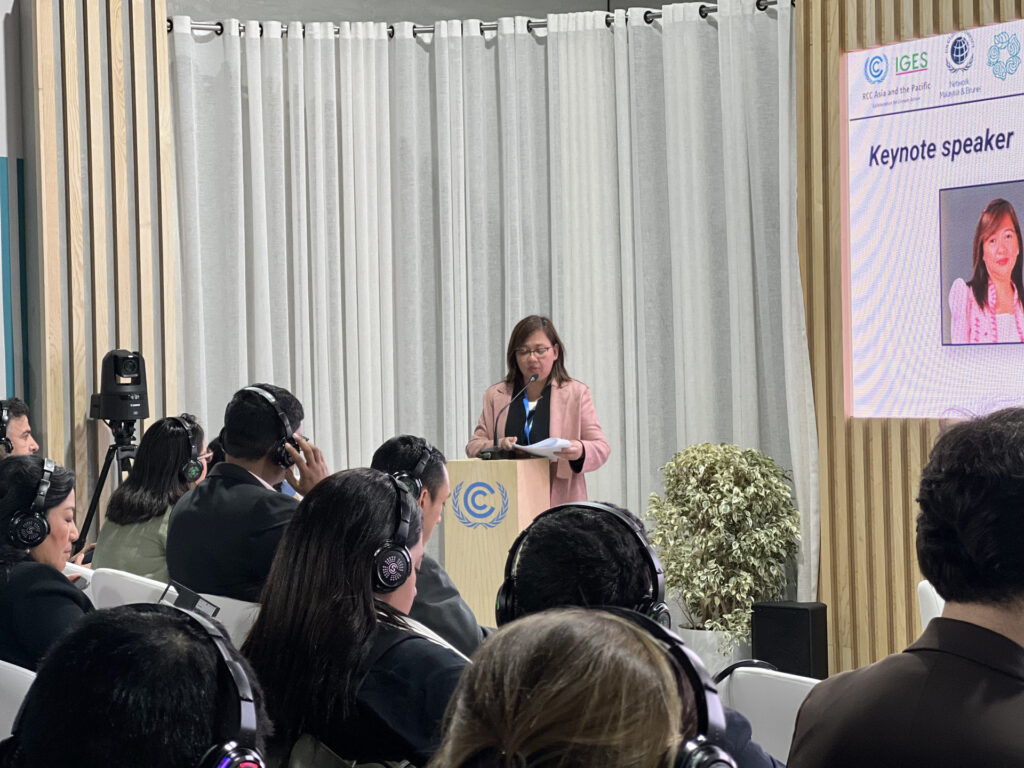
The event began with opening remarks from Nour Hamladji, the Deputy Executive Secretary of UNFCCC. She highlighted the urgency of adopting actionable strategies and strengthening partnerships as nations prepare for updated NDC submissions in 2025. Hamladji reiterated the importance of sustained commitment and collaboration to achieve global climate goals. It continued with a keynote speech by Atty. Analiza Rebuelta-Teh, the Undersecretary of the Department of Environment and Natural Resources, Philippines. Her address set the tone for the discussions, emphasizing the shared responsibility of all stakeholders in driving meaningful climate action.
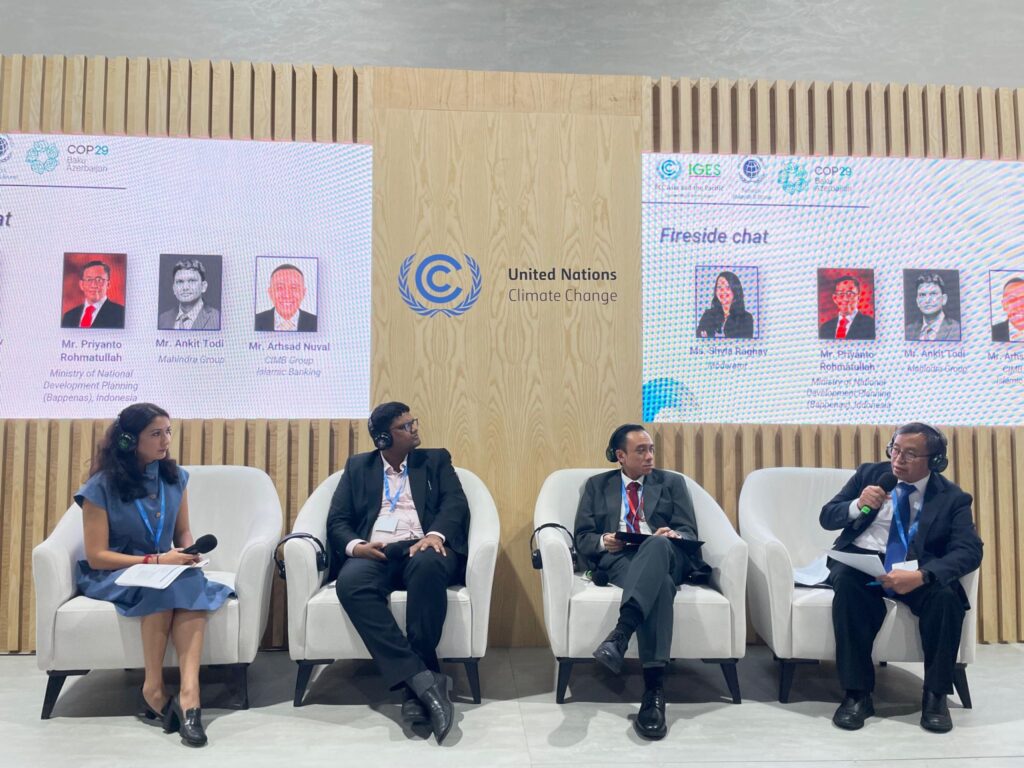
The panel discussion featured distinguished speakers, including Priyanto Rohmatullah, the Director of Environment at the Ministry of National Development Planning (Bappenas), Indonesia; Ankit T., the Group Chief Sustainability Officer of Mahindra Group; and Arshad Nuval, the Head of Sustainable Finance at CIMB Group Islamic Banking. The session was moderated by Shyla Raghav, the Chief Climate Officer at Time, who facilitated an engaging dialogue on strategies for private sector engagement in NDC implementation.
Key highlights from the session:
- Leveraging private sector funding: Bridging financing gaps to enable large-scale transformations aligned with NDC targets. While private actors contributed approximately 49% of total climate finance (USD 625 billion), scaling this contribution in emerging markets and developing economies (EMDEs) remains challenging.
- Scaling project preparation: Building robust pipelines, aggregating projects, and implementing enabling policy frameworks to attract private investments. The European Union’s example of mobilizing €7.1 billion in private sector climate finance alongside €28.6 billion from public sources in 2023 was highlighted.
- Strengthening public-private collaboration: Emphasizing partnerships between governments and businesses to streamline NDC implementation, foster innovation, and overcome barriers to sustainable development.
- Article 6 mechanisms: Unlocking cooperative approaches and enabling international transfers of mitigation outcomes to scale private-sector-driven climate solutions. These mechanisms facilitate cost-effective NDC implementation while promoting sustainable development.
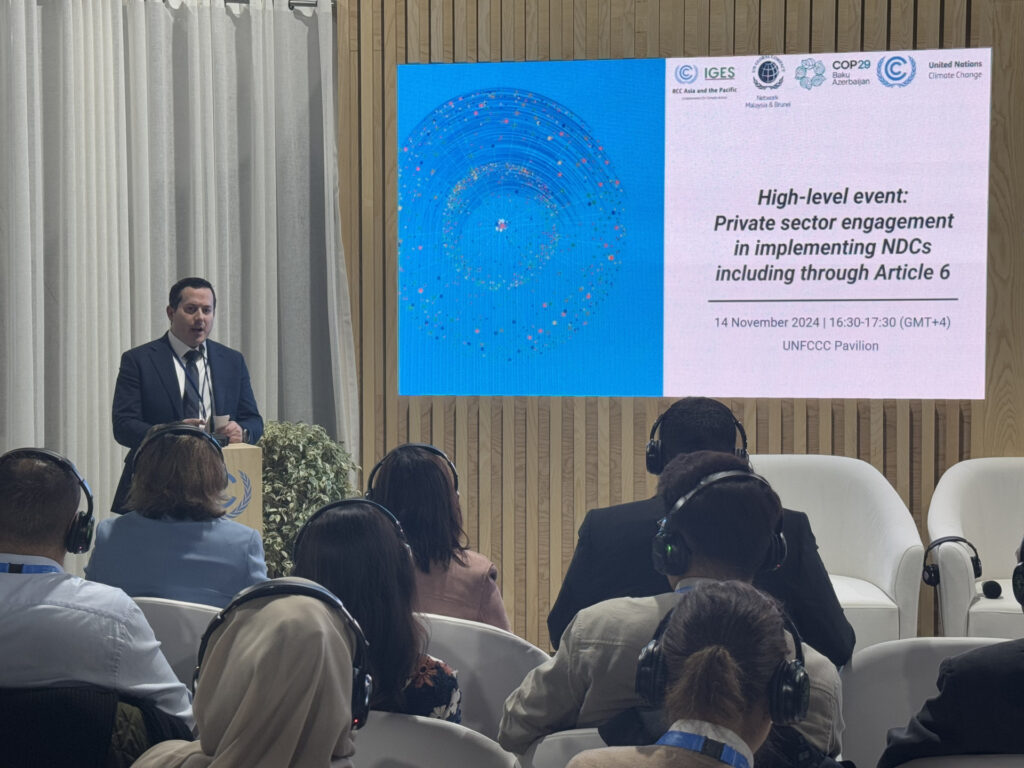
The event concluded with closing remarks by Fernando Castellanos, the Head of Environment and Climate at the UN Global Compact. He underscored the Ten Principles of the UN Global Compact and the role of the private sector to contribute towards the NDCs in collaboration with the policymakers from the national government as well as related stakeholders.
This high-level event reinforced the pivotal role of the private sector in advancing NDC implementation through innovative financing, strategic collaborations, and the effective use of Article 6 mechanisms. By fostering international cooperation and scaling impactful climate solutions, the session set a powerful example of multi-stakeholder engagement driving progress toward a sustainable, low-carbon future.

